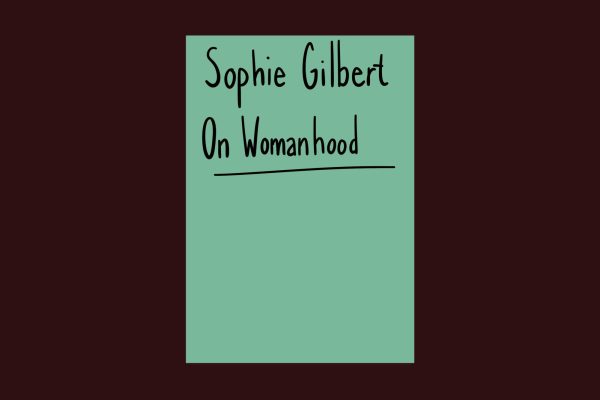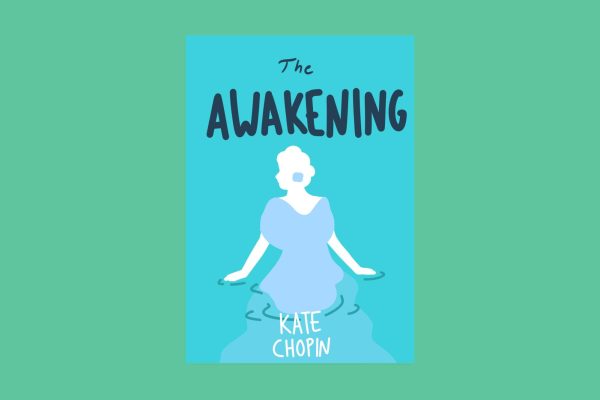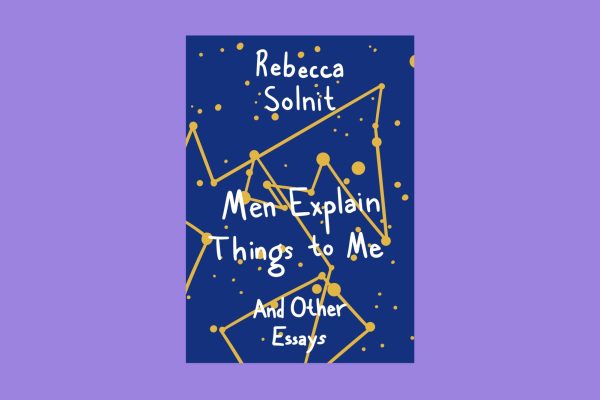“On Womanhood: Bodies, Literature, Choice” by Sophie Gilbert

“But the ability to shape the narrative in our own terms is a transformative one, as so many of the subjects of these pieces attest.”
“On Womanhood: Bodies, Literature, Choice” is a pocket-sized book that is small but mighty, poignantly exploring pop culture developments through a feminist lens. From Jane Austen’s marriage plots to erotica to the sexual violence in “Game of Thrones,” Sophie Gilbert, a staff writer for The Atlantic, analyzes the contemporary cultural zeitgeist in a digestible way to better understand how the media we consumes shapes modern womanhood.
I read these 12 essays in rapid succession, as I am always a fan of contemporary applications of feminist theory. I appreciated Gilbert’s breadth of topics, covering both the high-brow- and low-brow content of the modern media landscape.
— Alexa Donovan, Arts Editor
“The Awakening” by Kate Chopin

Edna Pontellier is stuck, confined by motherhood and suffocated by the gilded cage of 19th-century womanhood. She has gone through life on auto pilot, bending to every expectation put onto her. Throughout a summer at the Grand Isle holiday resort, she is stirred from the numbness of her existence, awakening to desires she has long suppressed — freedom, passion and a sense of self — sparked by her connection with an unusual man named Robert Lebrun.
Back in New Orleans, she sheds the trappings of her prescribed life, abandoning her domestic roles and wifely duties to pursue art and a fleeting love. After a few months of blissful independence, the boundaries of the world prove unrelenting, and her short-lived liberation collides with reality. The novel’s ending portrays a freedom that remained tragically out of reach for women of Edna’s time.
Kate Chopin is among many trailblazing female authors that go overlooked, and her writing often reflected her own sense of entrapment. After the release of “The Awakening,” Chopin was denied publication of many of her later works, due to a fear that women would resonate with the themes of self-ownership and would find fulfillment and identity separate from domestic duties or motherhood.
— Mehr Kotval, Opinion Editor
“What We Say Goes: Conversations on U.S. Power in a Changing World” by Noam Chomsky

Noam Chomsky may be revered as “the father of modern linguistics,” but the renowned professor is also known for his astute, oftentimes controversial political mind. His 2007 book “What We Say Goes” — a compilation of interviews between Chomsky and radio broadcaster David Barsamian — acts as a critical analysis of U.S. foreign policy, exploring topics of American exceptionalism, imperialism and the mainstream media.
The book begins with an account of the Israeli invasion of southern Lebanon in 2006 backed by former President George W. Bush. Chomsky criticizes the U.S.-funded attack on civilian life and infrastructure and condemns Bush’s refusal to call for an immediate cease-fire. Similarly, he argues the United States should be held accountable for its invasion and subsequent occupation of Iraq and Afghanistan, Israel’s occupation of Palestine, its economic interference in Latin America and its involvement in the Vietnam War, just to name a few.
Chomsky’s analysis is rooted in the argument that the United States is the only nation state immune to international law, giving it the ability to invade or bomb other countries on a whim, meddle with their election results and promote global injustices in the name of democracy. Though a mere series of interviews, “What We Say Goes” acts as a timely, critical look at contemporary Western imperialism and the United States’ superiority complex — which, let’s face it, will only worsen in the next four years.
— Yezen Saadah, Editor-in-Chief
“Men Explain Things to Me” by Rebecca Solnit

Content Warning: This review mentions sexual assault and domestic violence.
“Men Explain Things to Me” was originally published in 2014 as a short compilation of Solnit’s writings, with a focus on the titular essay, where Solnit tells a witty story about someone mansplaining her own novel to her. He later admits that he hadn’t even read her book — he just read a review of it in The New York Times.
She goes on to cover more sensitive topics in the other essays, including both personal accounts and stories of other women’s experiences with rape, domestic violence and mistrust toward men. Solnit discusses misogyny and power imbalances with contagious frustration to illustrate the daily struggles women face.
At times the information felt slightly repetitive, but I still found it difficult to put the book down. Angered by how frequent such violent occurrences are, I realized that this repetition is how Solnit makes her point stick, and that it takes consistency for people to grasp the seriousness of this issue.
— Eva Mundo, Contributing Writer
Contact the Arts Desk at [email protected]

























































































































































